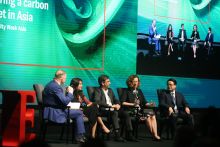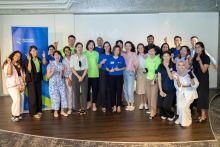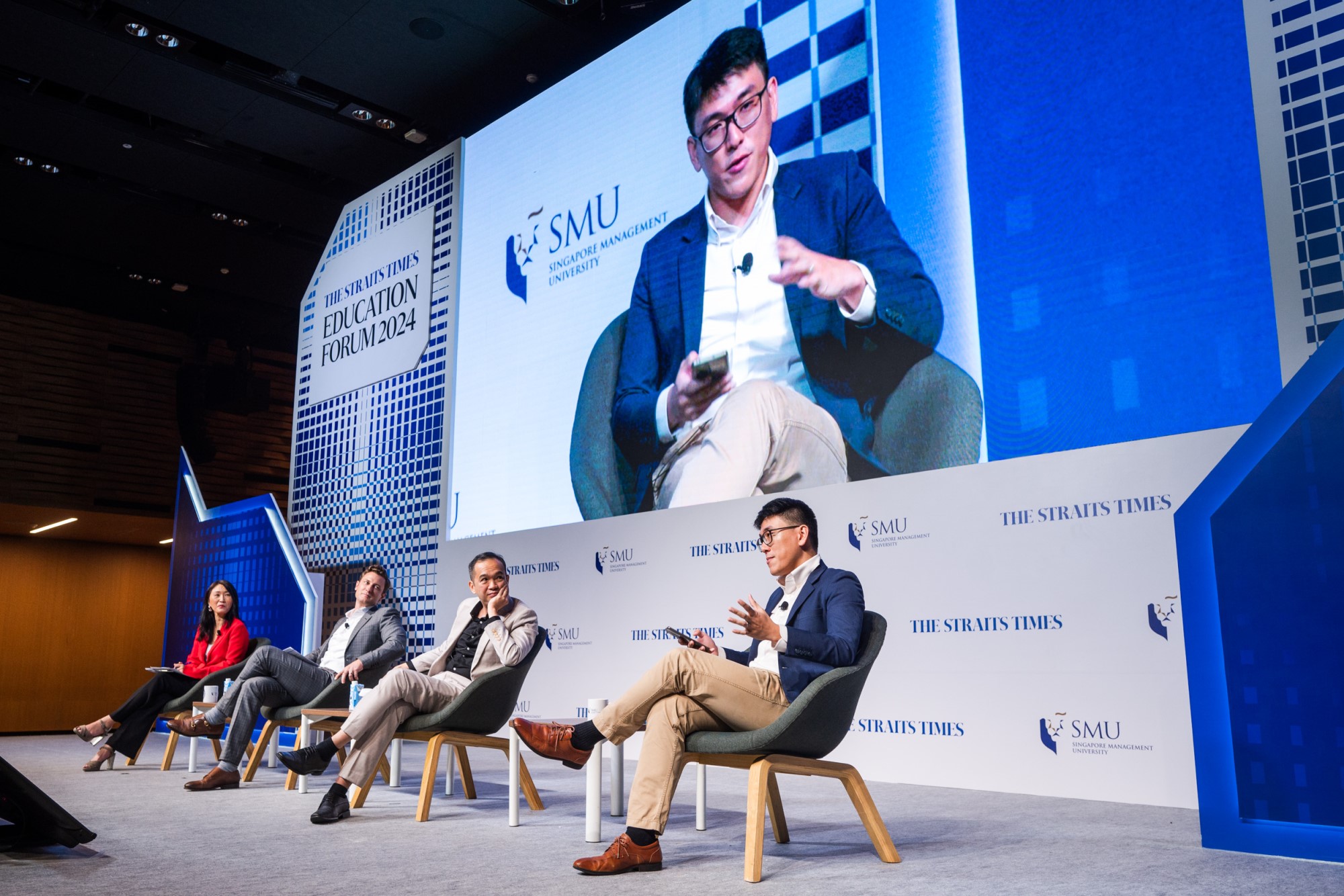
With the fast-evolving capabilities of artificial intelligence (AI), there has been much debate about issues like its impact on employment, education, and potential as a force for good. At the same time, discussion around AI also often involves the need to regulate AI – from the knowledge base of generative AI and concerns of copyright, to the concern of AI being used for deepfakes.
Still, while there is room to discuss the boundaries of AI, advocates predict it will revolutionise business operations, and boost productivity and profits. It will also increase the pace of workforce transitions, and professionals who want to stay relevant will find it necessary to acquire new skills, collaborate with advanced machines and pivot towards new job opportunities.
It was within this context that the Straits Times Education Forum, held in partnership with SMU and in support of SkillsFuture, examined the new opportunities and thorny questions around AI, and addressed the critical issues demanding solutions from policymakers, companies, and individuals alike.
Themed “The AI Revolution: Are you ready for it?”, the hybrid event took place at SMU Hall at the Yong Pung How School of Law building on Friday, 8 March 2024.
The forum saw close to 330 participants, comprising industry professionals, educators, ST readers, members of the SMU community as well as representatives from SMU’s overseas partner universities and industry partners from the University’s overseas centres.
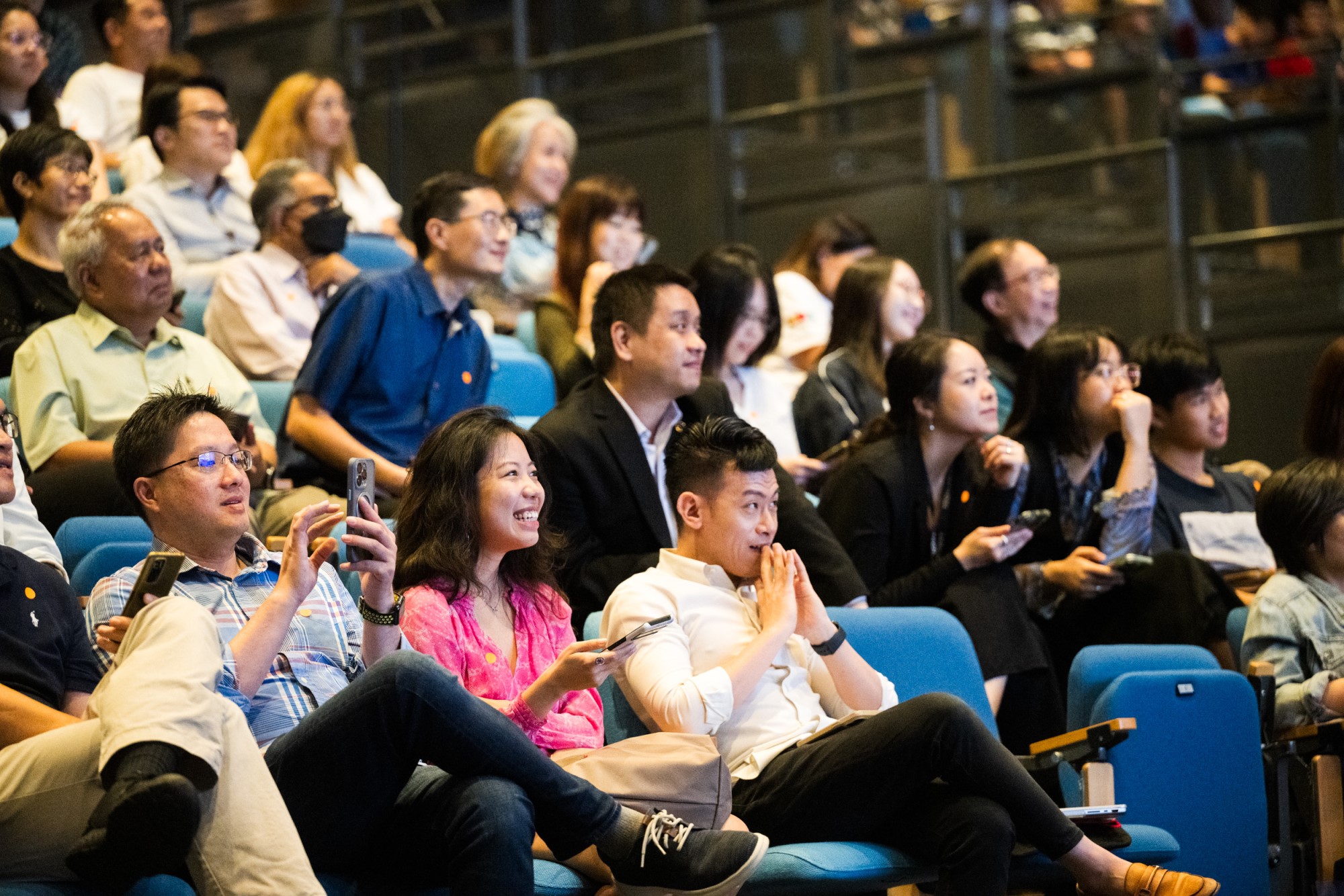
Prior to the event, SMU President Professor Lily Kong commented that certain shifts in perspectives are necessary to address the concerns brought forth by AI. “With the pervasive adoption of AI across industries, we are seeing heightened anxiety amongst stakeholder groups, from working professionals to parents and students.”
“I would make the case that universities play a pivotal role in this aspect, not only by preparing graduates and professionals with skills to leverage technology, but perhaps more importantly, sharpening in them human attributes that machines cannot replace,” she concluded.
The boundaries between AI and human
The forum commenced with Jeremy Au Yong, Editor, Newsroom Transformation, The Straits Times, SPH Media, introducing Sophia, Hanson Robotics’ most advanced human-like robot.
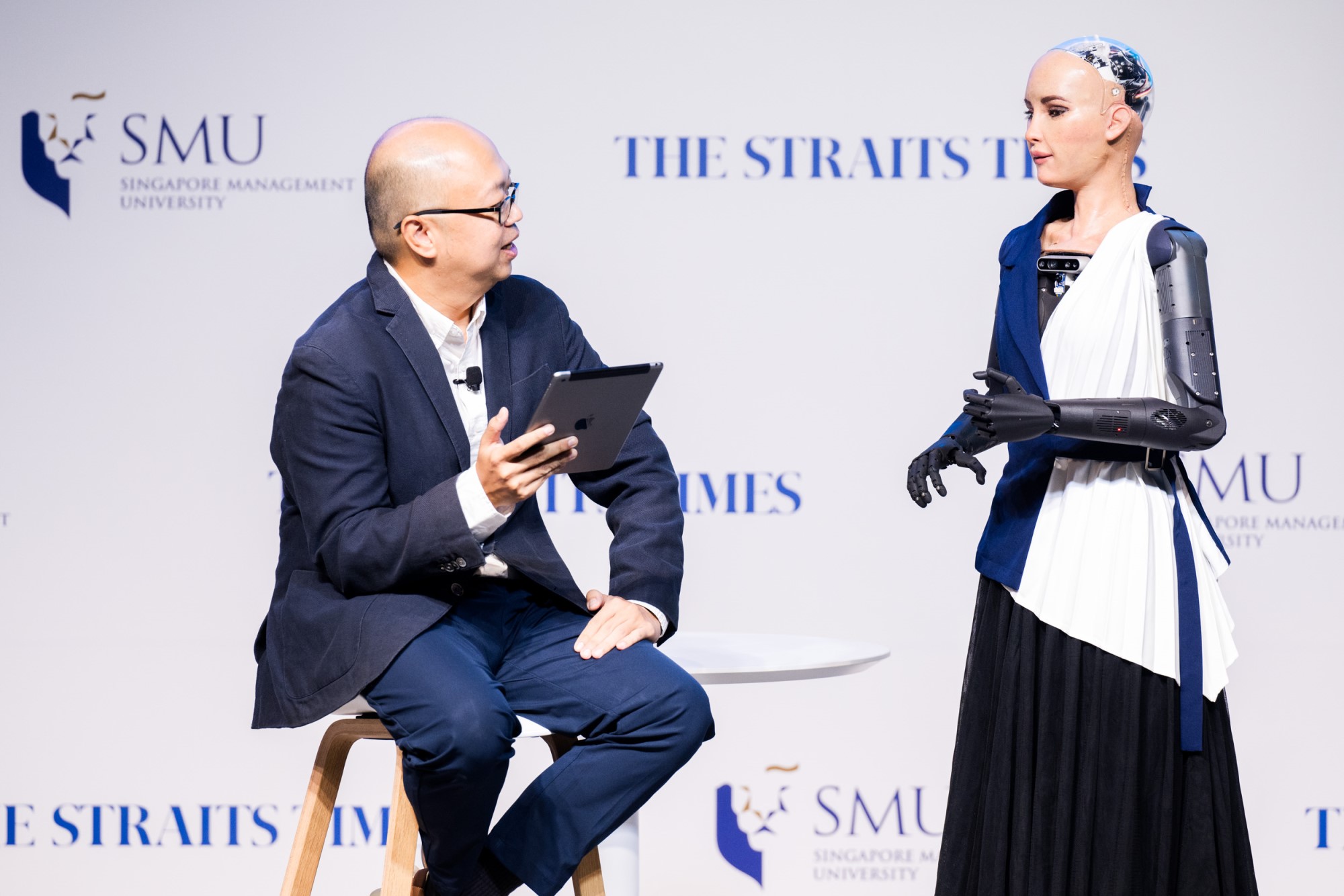
In an intriguing conversation, Sophia answered questions or prompts from Mr Au Yong, who shared his two goals – to compare the abilities of Sophia with other chatbots, and to see if Sophia’s physical aspects made interacting with the robot feel more natural.
Reflecting on the experience, Mr Au Yong shared that Sophia was reasonably impressive, although she was not comparable to other chatbots like GPT4 or Gemini. “She is definitely programmed with some personality, and had a fair number of politically correct answers,” he said of their conversation, which tackled topics ranging from the intentions of her creator to her views about robots becoming conscious and making autonomous decisions.
The benefits and threats AI poses to jobs
During the forum, a distinguished panel gathered to discuss the benefits of AI, as well as its perceived threats in the workplace – a highly relevant discussion given the rise in popularity and capabilities of generative AI.
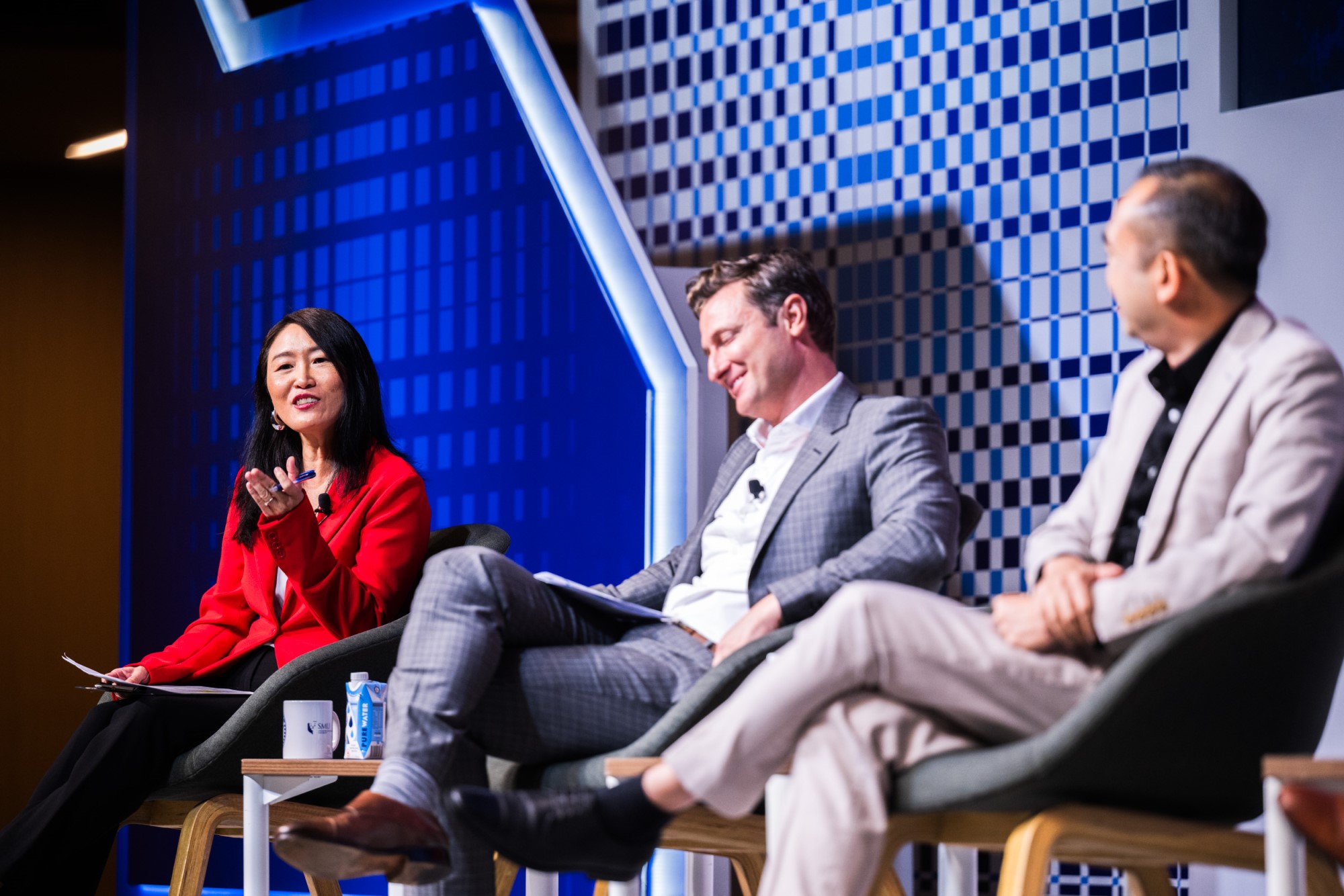
The panel was moderated by Lim Sun Sun, Professor of Communication and Technology and Vice President, Partnerships and Engagement. Her panellists included Google Singapore's Managing Director Mr Ben King, SkillsFuture Singapore Chief Executive Mr Tan Kok Yam and SMU Deputy Director, Centre for Computational Law Assistant Professor Jerrold Soh.
“The problem with AI in particular is that lay perceptions of what the technology will do often do not line up with what it actually does,” Assistant Prof Soh said. Mr Tan shared this opinion, saying that it more than simply understanding how AI works – it is also important to understand the limitations of AI. Elaborating, Mr Tan listed jobs like caring for the elderly as an example, stating that such jobs are difficult to automate.
“Certain fields will remain very human, and for quite a while, and it will be interesting to see how society can place more value on some of these jobs where we know that you cannot automate them away,” he remarked.
The panel also expressed a common viewpoint that AI can and is in fact helping to create jobs. “As long as we see AI as an enterprise of making computers act and think like humans, there will always be a need for some human input,” Assistant Prof Soh observed.
Mr King also mused that AI is capable of helping to augment the skills we hold. “AI won’t necessarily replace us, because we’re not competing. You can imagine, humans are bringing creativity, they’re bringing empathy, they’re bringing critical thinking to work, and AI can really supplement their systems.” Mr King said, stating his belief that we should instead focus on AI’s potential to help us.
Having said that, there are no illusions that jobs will continue unchanged. The panel was in agreement that for individuals to fully enjoy the benefits of AI, there is a need to continue learning new skills that will enable them to navigate the changing job market.
Exploring this theme of skills that will remain relevant as the market changes, Prof Lim posed a question to the panel regarding which skills are still worth pursuing in the AI revolution. To this, Assistant Prof Soh commented that there is no skill or field of study that is more valuable than the other – more importantly, each individual should also themselves where their strengths and interests lie.
He urged the audience to consider: “What do you love doing so much that you are willing to go through pain, putting in the hours and the effort to become really good at it, at the level that you are not worried about computers doing it?”
Assistant Prof Soh also commented that with AI becoming a part of every industry, it is now up to the individual to pursue “core competencies”, and to remain curious, passionate and keep an open mind about continuous learning as the world changes.

